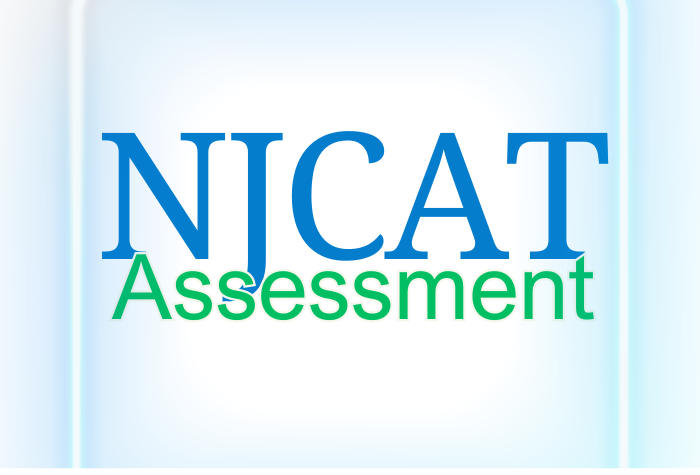This guide is designed to help families of individuals with intellectual and developmental disabilities understand and access the services available through the New Jersey Division of Developmental Disabilities (DDD). We’ll cover the key programs, eligibility requirements, services available, and tips on how to navigate the system effectively.
1. Eligibility for DDD Services
To qualify for DDD services, individuals must meet the following criteria:
- New Jersey Residency: The individual must live in New Jersey.
- Medicaid Eligibility: Individuals must be eligible for Medicaid services.
- Disability Onset: The individual must have a disability that began before age 22.
- Functional Limitations: The disability must result in significant limitations in at least three of the following life activities:
- Self-care
- Learning
- Mobility
- Communication
- Self-direction
- Economic self-sufficiency
- Ability to live independently
Families can apply for DDD services by contacting the division, completing a Medicaid application, and undergoing a comprehensive assessment to determine service needs.
2. Medicaid Waiver Programs: Supports Program and Community Care Program (CCP)
Program (CCP)
DDD offers two primary Medicaid waiver programs that fund essential services:
Supports Program
- Overview: Designed for individuals who live at home or independently with support from their families or community.
- Key Services:
- Day habilitation: Structured activities aimed at improving life skills and promoting independence.
- Supported Employment: Job coaching, training, and assistance with job placement.
- Individual Supports: Assistance with daily living tasks such as meal preparation, personal care, and community involvement.
- Respite Care: Short-term relief for family caregivers.
- Who It’s For: Ideal for individuals who do not need 24/7 care but benefit from structured support in community and independent living environments.
Community Care Program (CCP)
- Overview: CCP provides more intensive services for individuals who require higher levels of care, including residential supports.
- Key Services:
- Residential Support: Group homes, supervised apartments, and other long-term residential care options.
- Behavioral Supports: Services to assist with managing challenging behaviors.
- Assistive Technology and Therapy: Physical, occupational, and speech therapy, as well as technology supports to promote independence.
- Day Habilitation and Vocational Training: Similar to the Supports Program but with additional resources for those needing comprehensive care.
- Who It’s For: Individuals with significant needs, including those requiring full-time residential care or extensive support services.
3. NJCAT: The New Jersey Comprehensive Assessment Tool
The New Jersey Comprehensive Assessment Tool (NJCAT) is a crucial step in determining an individual’s level of need and their service allocation. This assessment evaluates the person’s ability in areas such as self-care, mobility, and socialization, and assigns them to a specific funding tier.
How It Works:
- Funding Tiers: The NJCAT results place individuals into a tier that defines their service budget. Higher tiers indicate a greater need for support and allocate more funding for services.
- Annual Review: The assessment is updated periodically to reflect changes in the individual’s condition or needs.
4. Support Coordination and the Individualized Service Plan (ISP)
Once an individual is enrolled in a DDD program, they are assigned a Support Coordinator. This person helps manage services and ensures that the individual receives the supports outlined in their Individualized Service Plan (ISP).
Key Responsibilities of the Support Coordinator:
- Create the ISP: The ISP is a customized plan that identifies the individual’s goals and the services needed to achieve them.
- Manage Services: Coordinators monitor the individual’s progress and adjust services as needed.
- Connect to Providers: They help families select the best service providers for the individual’s needs.
Families should meet regularly with their Support Coordinator to ensure that the ISP remains relevant and that services are delivering the intended benefits.
5. Key Services Available
Both the Supports Program and CCP provide access to various services designed to enhance independence, well-being, and community participation:
- Day Habilitation: Activities focused on building life skills, socializing, and personal development.
- Supported Employment: Job coaching, vocational training, and placement services.
- Individual Supports: One-on-one assistance with daily living tasks, including personal care and community activities.
- Respite Care: Short-term relief for caregivers, allowing them time to rest while ensuring the individual continues to receive care.
- Transportation: Assistance with travel to work, appointments, or community activities.
- Therapies: Access to physical, occupational, and speech therapy services.
- Behavioral Supports: Professional services to manage behaviors and improve life skills.
6. Housing and Residential Support
While the Supports Program does not provide funding for housing, the Community Care Program (CCP) offers comprehensive residential options for individuals needing long-term care. These options include group homes and supervised apartments.
In some cases, individuals may qualify for housing vouchers through the Supportive Housing Connection, which helps cover rent for individuals living outside their family home. Note that the CCP does not cover room and board costs, but vouchers and other assistance programs (e.g., SNAP, LIHEAP) can help offset living expenses.
7. Maximizing Your DDD Budget
Managing the DDD budget wisely is essential to ensure that the individual gets the most from their services:
- Work closely with your Support Coordinator to keep the ISP up-to-date and aligned with the individual’s changing needs.
- Choose providers carefully, comparing services and rates to maximize the available budget.
- Leverage natural supports, such as assistance from family and friends, to reduce the need for paid services.
- Plan for the future, especially if you expect the individual’s needs to increase over time.
8. Alternative Programs and Resources
In addition to the DDD programs, individuals may be eligible for other state or federal resources, such as:
- Social Security Disability Insurance (SSDI) and Supplemental Security Income (SSI)
- New Jersey WorkAbility Program, which allows individuals with disabilities to work while retaining Medicaid benefits
- NJ Able Account, which allows individuals to save money for disability-related expenses without affecting their Medicaid eligibility
9. How to Apply for DDD Services
To access DDD services, follow these steps:
- Apply for Medicaid: Ensure the individual is eligible for Medicaid, as it is required for DDD services.
- Submit a DDD Application: You can apply online or contact DDD for assistance with the application process.
- Complete the NJCAT: Participate in the NJCAT assessment to determine the individual’s service needs and funding level.
- Develop an ISP: Work with your Support Coordinator to create an Individualized Service Plan that outlines the services and supports needed.
10. Important Contact Information
- DDD Main Office: 1-800-832-9173
- Supportive Housing Connection: For housing assistance inquiries
- New Jersey Council on Developmental Disabilities (NJCDD): Offers advocacy, resources, and additional support for families





